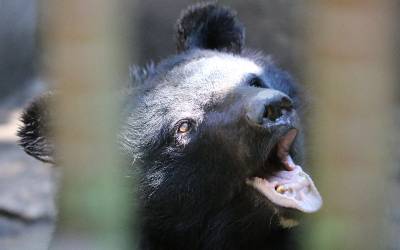N. Korea Wildlife Trade Endangers Species
The report, published in Biological Conservation, found that although North Korea has a regulatory system of protected areas and protected species, these are regularly breached by people hunting and trapping wild animals for personal consumption or black market trade, either domestically or for sale to buyers in China.
Additionally, the North Korean state itself is implicated in, and actively profiting from, harvesting and trade of endangered species protected under domestic or international law. Protected species reported from state wildlife trade include Asiatic black bears, long-tailed gorals and Eurasian otters.
Their study is based on extensive interviews with North Korean defectors, including former hunters, wildlife trade middlemen and buyers, and is the first in-depth assessment of North Korea’s multifaceted wildlife trade, carried out between 2021 and 2022. The study was carried out in collaboration with researchers from the ZSL’s Institute of Zoology, Norwegian Institute for Nature Research (NINA) and University of Inland Norway.
The researchers argue that the North Korean government’s compliance with domestic protected species legislation should be an immediate priority. They call on China, as a key market for North Korean wildlife products, to continue efforts to curb domestic demand for illegal wildlife and put diplomatic pressure on its economically dependent neighbour to disengage from state-sanctioned illegal wildlife trade.
Lead author Dr Joshua Elves-Powell (UCL Geography) said: “The widespread harvesting of North Korea’s wildlife, driven by the economic limitations of the North Korean state and the shortages of food, medicine and basic goods experienced by many of its citizens, is an important threat to the biodiversity of North Korea and the wider region.”
China is the primary international market for the North Korean wildlife trade, with notable products including wild meat, furs, and body parts for use in traditional medicine. Some of this trade breaches China’s commitments as a Party to the Convention on International Trade in Endangered Species of Wild Fauna and Flora (CITES) and member of the UN Security Council, for example UN Security Council Resolution 2397, which prohibits the export of food from North Korea.
https://www.ucl.ac.uk/news/2025/may/north-koreas-illegal-wildlife-trade-threatens-endangered-species
View Original | AusPol.co Disclaimer
